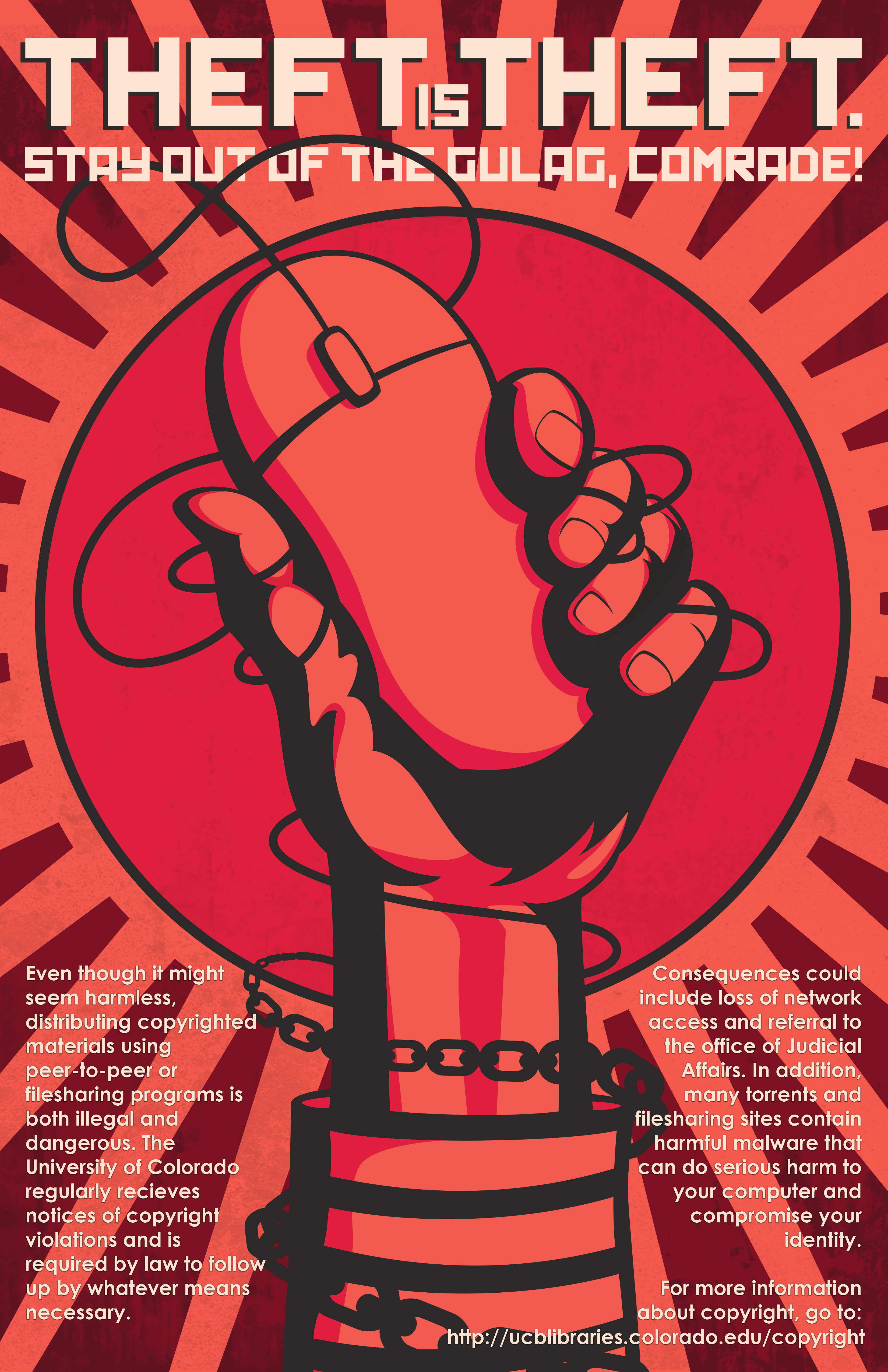
What is copyright?
Copyright is a form of protection provided to the authors of original works of authorship including literary, dramatic, musical, artistic, and certain other intellectual works, both published and unpublished. The 1976 Copyright Act generally gives the owner of copyright the exclusive right to reproduce the copyrighted work, to prepare derivative work, to distribute copies or phonorecords of the copyrighted work, to perform the copyrighted work publicly, or to display the copyrighted work publicly." Copyrights, like patents and trademarks, are a public claim of ownership and offer limited monopoly power over intellectual property. The copyright protects the form of expression rather than the subject matter of the writing. For example, a description of a machine could be copyrighted, but this would only prevent others from copying the description; it would not prevent others from writing a description of their own or from making and using the machine. Protection is limited to the particular expression of an idea, process, or concept in a specific form. However, copyright protects others from deriving new work based on the original. Fair use provisions of the copyright law allow for the limited use of copyrighted materials without the author's permission for specific purposes.
The Fair-Use Doctrine
Fair use is a limitation and exception to the exclusive right granted by copyright law to the author of a creative work. In United States copyright law, fair use is a doctrine that permits limited use of copyrighted material without acquiring permission from the rights holders. There are four factors to consider when using copyrighted material. Don't think of these as a checklist, but more of a criteria on a spectrum of "fair" and "not-fair."
-
The purpose and character of the use - is it of a commercial nature or is it for nonprofit educational purposes?
-
The nature of the copyrighted work - is it non-fiction or public domain? Does it have a degree of "social usefulness?" A good example of this is the Zapruder Film, which was copyrighted by Time Magazine but was eventually turned over to the FBI and became public domain after the investigation of JFK's assassination.
-
The amount and substantiality of the portion used in relation to the copyrighted work as a whole - Many musicians legally "sample" segments of other artists' songs without permission. Since they typically only use small sections and change them to create something new, it is considered "fair use."
-
the effect of the use upon the potential market for or value of the copyrighted work - Will the original artist's potential profitability drop because of the use?
Torrenting
Torrenting and Peer-to-Peer filesharing are ways to transfer files between individual computers across the Internet and are not inherently illegal. Using them to download and share copyrighted material is. Both the recording and film industries are putting increased pressure on colleges to restrict, prevent, and prosecute students who share copyrighted media. The University of Colorado gets thousands of violation claims from copyright holders and is legally required to follow up on them. It's not malicious, it's just the law.
Running torrent software on a campus wireless network is a bad idea. For one thing, it can consume a lot of network resources, potentially affecting performance for others. Not very nice. But also, it is easy to trace you because if you are using a secure wireless network, the college knows that the machine being used is registered to you. People who still run torrent software anyway (and do not wish to be caught and fined) should at the very least avoid sharing files back to the network. Your torrent software looks for files to "seed" in a default folder. Either disable this feature or set it to an empty folder, because the legal hammer comes down hardest on people who actively share files back to the network, more so than people who "only" retrieve files.
If you do get caught, things can be bad. Chances are you'll get a warning at first, but depending on the severity of the claim by the copyright holder you could be facing anything from restricted or revoked campus internet privileges to hefty fines. In 2012, a student at Boston University was ordered by a federal judge to pay $675,000 for sharing only 30 songs. The record labels wanted to send a message to college campuses everywhere, and even though they have been struggling to enforce their copyright claims as strictly as they would like to, it's best to err on the side of caution.
Theft is theft, so consider alternatives to torrenting or illegally downloading copyrighted material.
 |
 |
 |
 |
| UCCS Help Desk | CU Denver & Anschutz Help Desk | CU Boulder Help Desk | CU Information Systems Help Desk |
|
719.225.3536 |
303.724.4357 |
303.735.4357 |
303.860.4357 |




